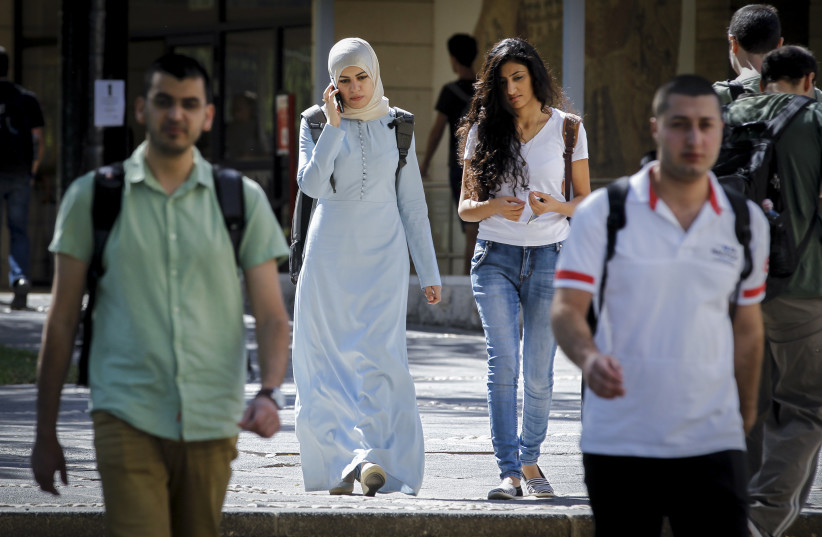Arab workers in construction and other occupations are at high risk of being injured at their workplace compared to other sectors and jobs, according to a new survey reported at Tuesday’s Nazareth Conference of the Institute for Safety and Health. The Israel Institute for Safety and Legal Information reports on how people struggle with occupational diseases and maintain occupational health.
A total of 37% of workers in the Arab sector reported a high sense of burnout compared to 19.5% among their Jewish counterparts, and 41.1% of Arab workers complained about lower-back pain that affected their functioning compared to 22.8% of Jewish workers.
Nearly 25% of Arab workers experienced physical stress at work, as opposed to just 8% of Jewish workers, and 17% of Arabs said they felt aggression at least once a week towards their Jewish colleagues.
Some 36.5% of Arab workers reported back-and-neck pain that impaired their functioning, compared to 13.1% among Jewish workers. Various injuries were reported among Arab workers, including 4.1% who experienced poisoning due to chemical exposure, 4.6% who reported fractures occurring in the workplace, 7.9% who said they were injured by foreign objects in their eyes, and 8.3% who had heatstroke or burns.

The Arab workforce in Israel
According to data from the Central Bureau of Statistics and the Labor Ministry, Arab society constitutes 15% of the total employed population in Israel, with approximately 44.7% of women and 76.4% of men in the Arab sector in the labor market.
During the conference, Dr. Sami Saadi presented new findings on the state of occupational morbidity in the Arab sector. These findings are based on a new survey that examined 2,042 workers from all sectors in the country. The survey highlighted the main types of chronic conditions in the workplace: musculoskeletal problems, skin damage, respiratory diseases, cardiovascular diseases, hearing impairments, injuries caused mainly by violence, work accidents, sleep disorders, and emotional damage caused by stress and burnout.
Injuries are not limited to physical harm but also include mental injuries resulting from burnout and coping with stressors. Almost 20% of workers in the Arab sector considered leaving their jobs at least once a week, while under 10% of Jewish workers did.
Only 5% of Arab employees said they feel they can work independently at their workplace, compared to 21% of Jewish employees. Additionally, 30% of workers in the Arab sector reported an imbalance between their home and work lives, compared to 20% of Jewish workers.
More than 25% of Arab workers reported organizational obstacles, compared to 13% of Jewish employees. As for working conditions, 40% of workers reported working in conditions that were too hot.
A significant portion of the workers at construction sites are Bedouin. The institute seeks to provide a solution to strengthen and improve equipment and safety culture in construction at designated training sites. Training is conducted in the Arabic language, and through their mobile units. Some 6,008 of these activities, which are part of the instructors’ mobile activities, were carried out at construction sites.
Reports showed that the work manager was missing from hundreds of construction sites, even though their presence is required by law, and 657 sites were not properly fenced as required.
In addition there were more than 430 reports of a lack of protective measures to prevent falls from work surfaces, unsafe access routes, hazardous work surfaces and walkways with a drop exceeding two meters.
Dr. Miki Winkler, the director of the Institute for Occupational Safety and Health, responded to the findings: “The data collected on occupational morbidity in Arab society is alarming. We are working tirelessly to promote a culture of safety in all workplaces, provide the necessary tools to protect the health and safety of workers, and address the alarming reality of workplace injuries, fatalities, and long-term illnesses affecting workers in their workplaces. We urge all entrepreneurs and managers to utilize our services to promote a culture of safety. Together, we can succeed in advancing a culture of safety in Israel.”
